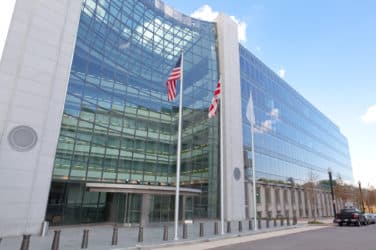(this article originally appeared on Bloomberg)
Navinder Singh Sarao, the British day trader accused of contributing to the 2010 Flash Crash, was allowed to return to his parents’ home near London’s Heathrow Airport after becoming the second person convicted of manipulating commodities markets by placing orders he never intended to fulfill.
Sarao, 37, extradited from the U.K. two days ago, pleaded guilty to spoofing and wire fraud last Wednesday in Chicago federal court and agreed to forfeit $12.9 million in ill-earned gains from his trades. He was accused of making $40 million spoofing CME Group Inc.’s stock futures market over five years, including on May 6, 2010, when a trading frenzy briefly wiped almost $1 trillion from the value of American equities.
His case grabbed headlines around the world as people struggled to grapple with the idea that a single day trader — often working from his bedroom in the house he shared with his parents — could make so much money and wreak such havoc on markets.
Sarao’s plea came a year to the month after trader Michael Coscia was convicted of spoofing and commodities fraud by a Chicago jury in the first criminal trial after the 2010 Dodd-Frank Act made such activity illegal. In the same court, the Commodity Futures Trading Commission reached a settlement in October in its lawsuit accusing Igor Oystacher and his 3Red Trading LLC of spoofing, a form of manipulation that involves moving prices by placing orders without intending to execute them.
Sarao also agreed to pay a penalty of $25.7 million to the CFTC to resolve a 2015 civil lawsuit filed against him by the commission. That settlement, which must be approved by a judge, bans Sarao from trading derivatives.
He faces a prison sentence of as long as 30 years. In reality, that maximum sentence is more an indication of the severity of the alleged crimes than the actual sentence he would receive.
Kendall approved Sarao’s release before sentencing under a plea agreement with prosecutors after confirming the process for placing liens on the property of his parents and brother in the U.K. The judge called Sarao’s father to make sure he understood that his home was being used to secure the $750,000 bond for release.
Sarao will be under curfew from 11 p.m. to 4 a.m. and he will be barred from traveling outside the U.K. or drinking excessively. “He doesn’t take any sort of intoxicant at all,” Sarao’s father said. “He doesn’t even drink tea or coffee.”
The judge set a status conference for Feb. 9 to decide on a sentencing date.
While fighting extradition, Sarao spent four months in prison last year as he tried to secure bail, eventually winning his release in the U.K. by disclosing he had about 25 million pounds ($31 million) of assets in Switzerland.
U.S. prosecutors said Sarao manipulated one of the most important financial assets in the world — futures on the S&P 500 Index, the benchmark measure for U.S. stock prices.
Tricking Market
The case shone a light on spoofing, a form of cheating made illegal through the 2010 Dodd-Frank Act. The technique is frowned upon because it undermines the validity of price quotes. Spoofing involves placing orders to buy or sell with the intent of moving prices in one direction, then canceling those trades before they’re executed to profit when prices snap back to where they had been.
Sarao’s lawyers challenged the U.S. case by arguing in October that his actions weren’t a crime in the U.K. and, because he’s a British citizen, any trial should take place in England. The prosecution countered that while Sarao was in the U.K., most of the damage was on an American trading platform.
“Navinder Sarao abused sophisticated technology to make a quick profit, and jeopardized the integrity of U.S. financial markets,” U.S. Assistant Attorney General Leslie Caldwell said in an e-mailed statement. “By flooding the marketplace with bogus orders, his scheme victimized countless individuals.”
The case is U.S. v. Sarao, 15-cr-00075, U.S. District Court, Northern District of Illinois (Chicago)






